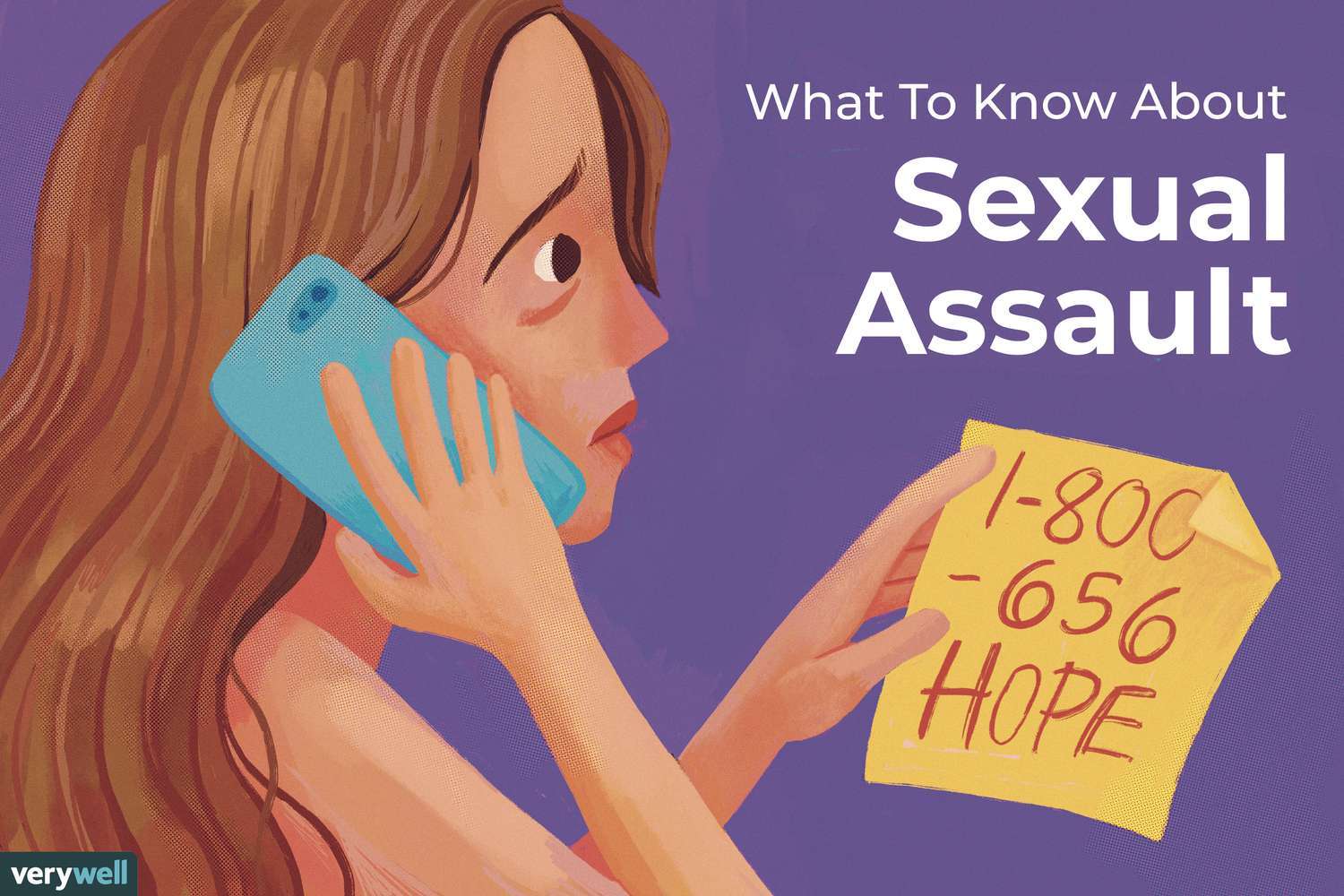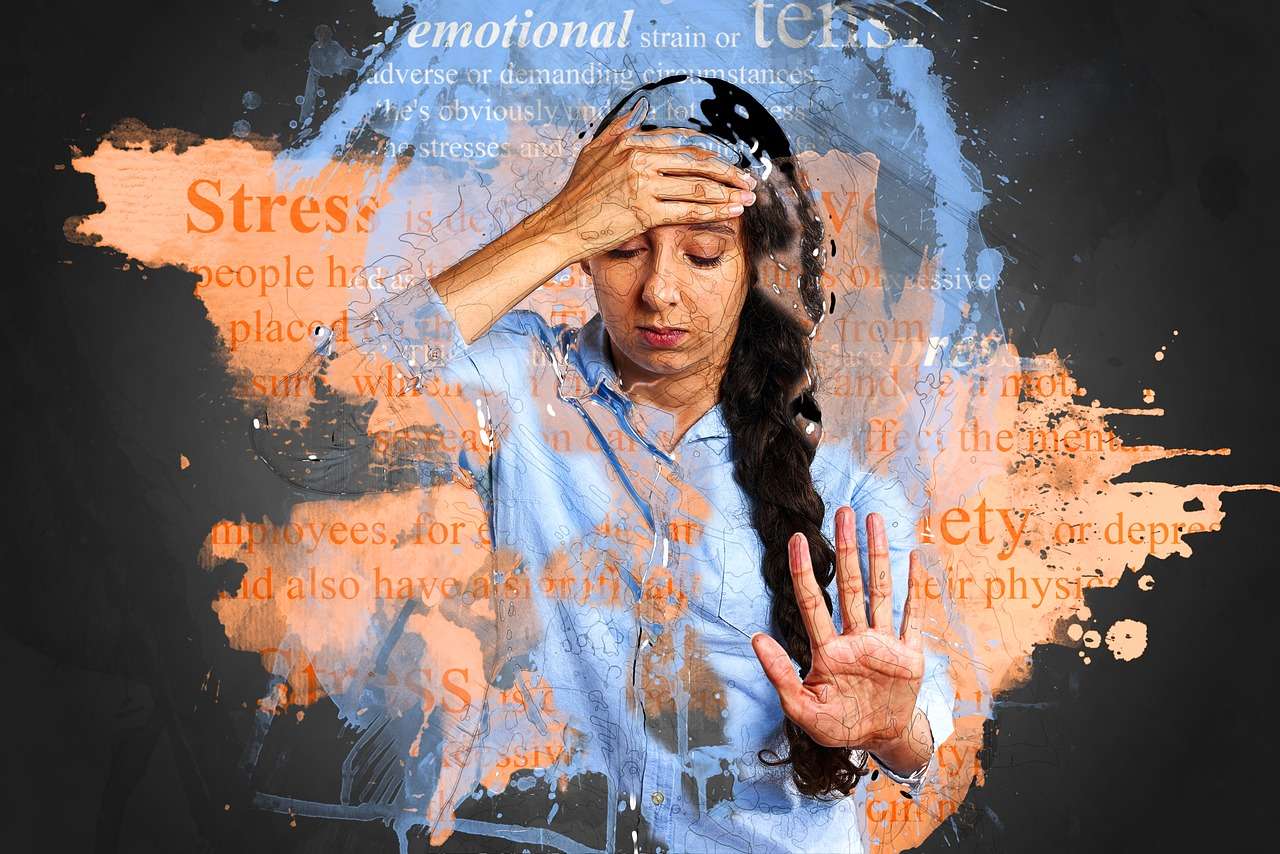What is sexual misconduct?
- Sexual misconduct includes sexual assault, sexual harassment, stalking, dating violence, and domestic violence.
- Sexual assault refers to sexual contact without consent which includes rape, sexual abuse, attempted rape, and unwanted sexual touching.
- Sexual misconduct may, but need not, include sexual penetration, which includes vaginal intercourse, oral sex, or anal penetration.
- Sexual misconduct may include conduct that involves any unwanted touching or fondling of the genitals or breasts of the victim.
- Date rape and acquaintance rape are considered sexual assault.
- Date rape is a crime of opportunity. It can happen to anyone.
What is sexual harassment?
Sexual Harassment is any unwanted verbal, written, electronic or physical conduct, of a sexual nature that is intended to cause or could reasonably be expected to cause an individual or group to feel intimidated, demeaned, abused or fearful or have concern for their personal safety because of their sex, sexual orientation, or gender identity or expression or because of their perceived or actual affiliation or association with individuals or groups identified by such characteristics.
What is sexual assault?
Sexual assault means an actual or attempted sexual contact with another person without that person’s consent. Sexual assault includes, but is not limited to:
- involvement in any sexual contact when the victim is unable to consent.
- Intentional and unwelcome touching of, or coercing, forcing, or attempting to coerce or force another to touch a person’s intimate parts (defined as genital area, groin, inner thigh, buttocks, or breast).
- Sexual intercourse without consent, including acts commonly referred to as “rape”.
- Sexual assault includes sexual contact with a person who is unable to consent, either due to age (under 17) or incapacitation (e.g. as a result of intoxication or the influence of other drugs).
Consensual sex vs. rape
Consensual sex occurs when both parties are able to provide a sober YES to requests for sex and each person is able to participate freely.
Rape occurs when:
- Force is used, no matter what the circumstances.
- Someone is unable for any reason—including the effects of alcohol, drugs, coercion, or assault—to knowingly and willingly consent to sex.
- Subtle or overt verbal or physical coercion is used to trick someone into having sex.
- Someone says NO. Whether stated softly or loudly, verbally, or with a shake of the head, NO always means STOP!
- It is automatically assumed that someone wants to have sex because she/he is drinking heavily, dresses in a certain way, or agrees to go to another person’s room.
- It is assumed that someone is willing to have sex just because that person has had sex before with the same person.
How to obtain or communicate your consent
Consent is informed, freely given, and mutual. If coercion, intimidation, threats, physical force, duress, or deception are used upon the victim, there is no consent.
Sexual consent means you have a clear “yes, I want to do this” from your partner at each and every step of sexual activity.
- Yes, you do have to ask!
- No means NO.
- No always means STOP what you are doing now!
- No does not mean keep trying until your partner gives in.
- Body language or ‘being turned on’ does not indicate that someone is giving consent for sex. Why? Because it’s difficult to differentiate between being scared and being aroused.
- Someone who is scared may begin to perspire, breathe quicker and heavier, shift their eyes around and their heart may pump faster.
- Someone who is aroused may begin to perspire, breathe quicker and heavier, shift their eyes around and their heart may pump faster.
Ways to gain consent
- You’re hot, can I kiss you?
- Am I moving too fast for you?
- Are we moving at an OK speed?
- Are you comfortable with this?
- Is it OK if I take off my pants?
- Do you want to take off your pants?
- Is it OK if we have sex?
Ineffective ways to gain consent
The responses to these questions do not indicate that someone is CONSENTING to have sex:
“Do you want to go back to my room?”The answer to this question only relates to entering the room.”Do you want to hook up?”This question and the answer to it are confusing since so many people have different ideas for what ‘hooking up’ actually means.”Do you want to go back to my place and watch a movie?”The answer to this question only relates to going to someone’s place and watching a movie.
Examples of harmful situations
It’s noon on Saturday following a night of partying. Alex just woke up, but doesn’t remember leaving the party or coming back to the dorm. Alex is pretty groggy from a night of partying and feels physically ill. Alex heads to the bathroom and discovers not only that his underwear is missing but that the clothes he is in aren’t his. Alex remembers agreeing to play a drinking game with shots at the party last night. Although Alex was with a group of close friends at the party, Alex doesn’t remember what happened. Alex may have made out with someone. He is really upset about the shape he is in and is concerned things might have gone too far.
Sam and Chris have been seeing each other for over a year. They are together constantly on campus. Lately, Colleen, Sam’s neighbor, has heard some loud arguments going on in Sam’s room. Colleen tried to talk to Sam about it, but Sam says that all couples argue and that it’s none of Colleen’s business. Most of Sam’s friends don’t see Sam very much anymore because Sam wants to spend time with Chris. Last night’s fight sounded pretty serious. Sam’s friends on the hall are really concerned and the RA had to get involved.
Jamie had been attracted to Riley for some time and was pleased that they had begun to date. Jamie thought that this relationship might have some good potential. Today, when Jamie shows up in Bobby’s room, Jamie is extremely distressed and confused. Jamie tells Bobby that when they returned to the dorm after Friday night’s party, Riley kept insisting that they have sex because Riley was turned on and it was Jamie’s fault. Riley said it wasn’t fair to do that if Jamie didn’t want to go all the way. Jamie is crying, doesn’t know what to do and doesn’t want anyone to know what happened.
If you or a friend identify with any of the college students in these scenarios, you have options!
Myths about rape and sexual misconduct
RAPE AND SEXUAL ASSAULT ARE CRIMES OF OPPORTUNITY. SUCH CRIMES CAN HAPPEN TO ANYONE.
Several myths exist about sexual assault and rape. These myths often shift responsibility, blame or focus from the assailant to the victim. Understanding the myths surrounding sexual assault and rape may help you in your recovery, help you to protect yourself or help you to be more supportive of a friend.
MYTH: Most rapes are crimes of passion.FACT: Most rapes are planned, often for as little as a few minutes. Rape is an act of entitlement which is less about sexual desire and more about power and control.MYTH: Rapists are mentally ill or psychotic and cannot help themselves.FACT: Very few people who commit sexual assault are mentally incompetent and/or out of touch with reality.MYTH: Women who don’t fight back haven’t been raped.FACT: Rape occurs when you are forced to have sex against your will – whether you fight back or not.MYTH: If a woman shows interest or goes out with someone, she owes that person sex.FACT: No one owes sex to anyone, regardless of how interested they seem or how much money is spent on dinner, a movie, drinks or anything else.MYTH: Most women make up stories about being raped. They lie about it to friends and acquaintances.FACT: Very few people make up stories about rape. Rape happens to people you know, is perpetrated by people you know, and could happen to you or someone you know. Over 60% of all rapes or sexual assaults are NOT reported to the police.MYTH: Intimate kissing or certain kinds of touching mean sex is inevitable…things were going too far and I just gave in, I couldn’t say no.FACT: Everyone has a right to say NO at any point. When someone says NO, sexual activity should stop. Giving in does not mean consent is given.MYTH: The victim must have “asked for it” by being seductive, careless, drunk, high, etc.FACT: No one asks to be abused, injured, or humiliated. This line of thought focuses on blaming the victim instead focusing on the assailant. An assailant makes the choice to commit a crime while ignoring the victim’s wishes. Criminal behavior is not justified by believing that someone “asked for it.”MYTH: If people would just stop drinking so much, they wouldn’t be sexually assaulted.FACT: Alcohol is a weapon that some assailants use to control the victim and render that person helpless. An assailant will encourage the victim to use alcohol, or identify an individual who is already drunk in a calculated attempt to isolate someone who is vulnerable. Alcohol is not a cause of sexual assault; it is just one of many tools that assailants use. Sexual assault also occurs in the absence of alcohol.MYTH: Rape is committed by strangers jumping out of bushes or dark alleys.FACT: Between 66 and 75% of victims know their assailants. The assailant is usually not a stranger. Instead he/she is an acquaintance, a date, a boss, a friend, a partner, a wife, a husband, a neighbor, a relative, someone you met at a bar, someone you kissed only once, or someone you met at a party.MYTH: Men can’t be raped.FACT: Anyone, regardless of age, race, gender, or sexual orientation, can become a victim of sexual assault or rape.
If you have been sexually assaulted, what happened to you is a CRIME.
IT IS NOT YOUR FAULT.
LGBTQI and sexual misconduct
Regardless of race, gender, or sexual orientation, anyone can be a victim of sexual assault. It is a myth that same-sex couples cannot be victims of sexual violence. People in LGBTQI relationships experience the same percentage, 30 to 40%, of sexual abuse as people in heterosexual relationships.
People who identify as being members of the LGBTQI community and are survivors of sexual assault face the same barriers to seeking help that all survivors face, but also a range of obstacles that are unique to the LGBTQI community.
LGBTQI survivors, like all survivors…
- Often feel self-blame, shame, fear, anger, and depression
- May feel confused and unsure of what happened
- May be concerned about how others will react to a disclosure
- Need help and access to available resources
LGBTQI survivors may…
- Feel reporting will only reinforce negative stereotypes
- Not be “out” to family and friends—which could represent a significant barrier to reporting if the perpetrator is of the same gender
- Question whether the incident is a hate crime (i.e., directed against the survivor because of their sexual orientation or gender identity)
- Be reluctant to seek help about a sexual assault or an abusive relationship due to fear that others will find out, since many LGBTQI communities tend to be very close and tight-knit
- Feel that their sexual orientation or gender identity is focused on more than the actual sexual assault
- Feel that they are being punished for not acting in accordance with society’s prescribed gender roles, increasing the amount of shame that they feel as a result of a sexual assault
- Not want to seek hospital care, especially if the survivor is transgendered, because it would mean revealing that they are a gender other than the sex they were born to, which in turn might cause discrimination
- Lack support not only from the community at large, but also from the LGBTQI community
Resources
- Gay Alliance of the Genesee Valley (GAGV)
- GLBT National Help Center 1-888-843-4564 FREE
- Parents, Families, and Friends of Lesbians and Gays (PFLAG)
- Gay, Lesbian and Straight Education Network (GLSEN)
Sexual assault is a severe, punishable act that should not be taken lightly. Maybe you hooked up with someone while you were drunk. Maybe a stranger touched you inappropriately in passing. Maybe you were pressured into having sex with your partner. What is and isn’t considered sexual assault?
In short, if you’ve experienced unwanted sexual touching, of any kind, then you’ve likely experienced sexual assault. However, there are many situations that need to be taken into account when talking about rape and sexual assault.
What the Law Says About Sexual Assault
Unwanted touching, of any kind, is unacceptable social behavior, but unwanted sexual touching is criminal.
Federal law defines many different sexual crimes, from “forcible touching” and “sexual misconduct” to “aggravated sexual abuse” and “predatory sexual assault against a child,” but it’s important to know that state jurisdiction can vary.
Many sexual assault crimes are considered felonies and depending on the state, sexual assault may be called “sexual battery,” “criminal sexual penetration,” or “rape.” Rape is considered a type of sexual assault. Categories of sexual assault include rape, as well as the following:
- Attempted rape (in which rape was the motive)
- Fondling or unwanted sexual touching (which includes groping, kissing, etc.)
- Forcing a victim to perform sexual acts
- Unwanted sexual penetration (which could involve non-body parts or objects)
- Sodomy (anal or oral sex) without consent
- Sexual contact with minors, consensual or not
If force, coercion, or incapacitation exists in a sexual act between two adults, it is considered sexual assault. Rape, in particular, is defined by federal law as: “Penetration, no matter how slight, of the vagina or anus with any body part or object, or oral penetration by a sex organ of another person, without the consent of the victim.”
Other types of sexual assault that aren’t often talked about include female genital mutilation (removal of part or all of the female genitalia) and sexual assault between intimate partners or martial couples. Despite misconceptions, intimate partner rape (also called marital rape or spousal rape) does occur and it can be extremely detrimental to an individual’s mental health.
Understanding Consent
Because sexual assault is a non-consensual sexual act, it’s important to define “consent.” When engaging in sexual relations of any kind, consent deals with more than just “yes” or “no,” which is why sexual assault (including rape) can be so controversial.
“Mutual consent is key, yet the type of consent is critical,” explains clinical psychologist Carla Marie Manly, PhD.
Any child under the age of thirteen cannot legally consent to having sex, even if they say “yes,” to a consenting adult. This is automatically considered “statutory rape” or “unlawful sexual intercourse.” When it comes to teen sexual assault, however, there are some unique factors to consider.
You are not obligated, under any situation, to have sexual relations with another person, even if that person is considered a sexual partner or spouse. However, sometimes individuals feel obligated, and this is one reason why the issues around sexual assault can be so complicated.
Consider the following hypothetical situations:
- A stranger touches an individual’s private area in public, but they have pants on.
- An individual is pressured by a manager to engage in sexual acts to maintain their position at the company.
- A 14 year old and a 12 year old both consent to having sex. Though this seems innocent, the two consenting individuals are “minors” and cannot legally consent.
- An intimate partner insists that you have sex or they won’t let you leave the house, so you unwillingly agree. Threats in intimate partner relationships are extremely unhealthy and dangerous.
- You agree to have sex with a partner as long as they use a condom, but they either remove it or damage it on purpose. This is called stealthing and it is unacceptable.
- You consent to having sex with a partner one day but do not consent to having sex with that same partner the next day and they force you to anyway.
All of the above scenarios are examples of sexual assault. If you feel pressured, or feel you have no other choice but to consent, then your decision is likely being “forced,” and saying “yes” becomes irrelevant.
Because many sexual acts occur in private between just two people, there aren’t usually witnesses who can attest to the consent or the situation in which consent was unable to be freely given, and that’s why sexual assault cases can sometimes be so challenging.
Here’s what all of us should keep in mind: if the situation feels uncomfortable, if an individual is not fully capable of consenting or is not consenting in a clear way, you should not continue with that sexual act regardless of hearing the word “yes” and if you’ve started to engage in a sexual act, but the individual changes their mind, then stop the act immediately.
The Bottom Line
If the situation feels uncomfortable, if an individual is not fully capable of consenting or is not consenting in a clear way, you should not continue with that sexual act regardless of hearing the word “yes” and if you’ve started to engage in a sexual act, but the individual changes their mind, then stop the act immediately.
How Alcohol and Drugs Play a Role
Casual sex is a large part of dating culture, as well as college culture, and the lines of consent can become blurry. When young adults experiment with drugs and alcohol, they often engage in risky behaviors which can quickly lead to sexual assault.
Elizabeth L. Jeglic PhD, Professor of Psychology at John Jay College of Criminal Justice, recommends “[not] engaging in [any] sexual activity when one or both parties are drinking or under the influence of substances. An individual cannot consent when they are drunk or high.”
How do you know if someone is under the influence and unable to consent? Signs of drunkenness or intoxication include, but are not limited to:
- Stumbling
- Slurring of words
- Bloodshot eyes
- Extreme emotions
- Confusion
- Drowsiness
- Incoherence
If you have any inclination that an individual is drunk or high, you should not engage sexually with them. If they are unconscious or passed out, you should not, under any circumstances, perform any sexual act on them.
Those most at risk of sexual assault are females ages 18 to 24 , but sexual assault can occur at any age, regardless of race, gender, and sexual orientation.
When Sexual Assault Occurs
“The days following an assault are difficult,” says Dr. Jeglic. “You will likely experience a variety of physical and emotional responses to the trauma. Everyone experiences [this] differently but it is not uncommon to feel fear, sadness, guilt, shame, anger, depression, anxiety and a loss of sense of self.”
Dr. Jeglic recommends that you be with someone you trust or feel safe with and consider seeking professional help and social support, but also work on maintaining a routine and avoiding alcohol and drugs. “Know that you will experience a lot of different emotions,” she says.
A Word From Verywell
The Rape, Abuse, and Incest National Network (RAINN) provides a toll-free 24-hour hotline for victims of sexual assault at 1-800-656-HOPE as well as an online chat hotline. When you call the HOPE hotline, your call will be routed to a local RAINN affiliate organization (based on the first six digits of your phone number).
When calling in on a cellular phone, there will be an option to enter your ZIP code (to more accurately route you to the nearest local sexual assault service provider). RAINN can help connect you to local counseling.
If you’ve been sexually assaulted, know it is not your fault and recovery is possible. You can learn coping mechanisms, join networks of support, and work with experienced mental health professionals.



